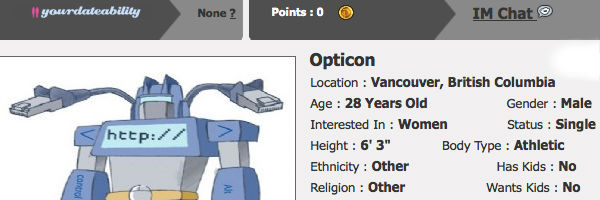
Recently, 52 Weeks of UX posted an article that challenged a commonly held opinion regarding web content — that it should be as concise and simple as possible in order to appeal to the average web user, whose attention span online doesn’t often creep past a few seconds. The popular theory goes, that if you don’t deliver the pertinent facts quickly, your website visitors will get frustrated and go elsewhere to find the information they desire.
In response to the point that web copy should be brief, the article’s author, Joshua Porter, stated: “There are several problems with this assumption, however. First, people do actually read on the Web…scanning is simply the first step in the process. Second, short text can be just as poorly written as long text (and often is). Third, people actually seek out and enjoy reading longer texts.“
Here are the author’s points supporting this statement, and our take:
Continue reading →

As a fellow web marketing professional — whether you’re a web copywriter, web designer, web developer, or a business owner interested in learning about the best way to market your business online — I’m sure you follow a plethora of like-minded people on Twitter.
You’ve probably also noticed a pattern in the kind of headlines that enter your feed, some at a more irritating frequency than others. These headlines purposely target high pressure points, and get incessantly regurgitated as a result.
Here’s how to recognize these repeat offenders and why you’d be better off to spend your clicks elsewhere.
Continue reading →

Most web copywriters argue that web copy should be more direct and conversational than most print materials; but how can you adopt this tone without compromising your brand identity? With a few rules and techniques you can set a tone that is appropriate for the web while respecting your brand.
Continue reading →

How long has language been around? For 50,000 years, language has aided human intellectual evolution and social advancements. Now the emergence of social media puts idea sharing, information exchange and our collective progress into hyper drive.
For generations, information and ideas have been shared through theater, schools and media. Books, newspapers, magazines, radio and TV sped the distribution and reach of language to the masses. The advent of the Internet hurled language onto an information super highway. With social media fully embedded in the mainstream, humans are now able to instantaneously tap into, and influence, the ideological pulse of the planet. So is this a good thing?
Continue reading →

For decades, the line between what we need and what we want has been blurring, leading to overconsumption and a range of environmental issues. Who’s to blame, and what can be done?
Continue reading →

Why do some ideas stick, while others silently slip away into oblivion? Made to Stick authors Chip Heath and Dan Heath pored over hundreds of winning ideas and saw, “over and over,” these same six principles at work.
authors Chip Heath and Dan Heath pored over hundreds of winning ideas and saw, “over and over,” these same six principles at work.
Continue reading →

Between scouring the Internet for bad content and stunt doubling for Optimus Prime, I don’t get much time to chat with the ladies in real time, so what’s a web marketing superhero to do? Megan Fox isn’t taking my calls, so it’s time to try online dating. What can I write in my dating profile so I can be sure to maximize my ROI?
Continue reading →

I am a copywriter, and along with my fellow copywriters, I write copy intended to communicate the benefits of certain products and services to people who will potentially use them. My logo is not a little ‘c’ with a circle around it, and my job has nothing to do with legal rights associated with creative works.
Continue reading →

If English weren’t an evolving language, we’d still be satisfying our retail needs at ‘Ye Olde Shoppes’ and referring to our less intelligent peers as ‘unpregnant’. Many factors contribute to the evolution of language, including geography, culture, and technology — but what determines the changes that are deemed acceptable enough for purists to relent?
Continue reading →












